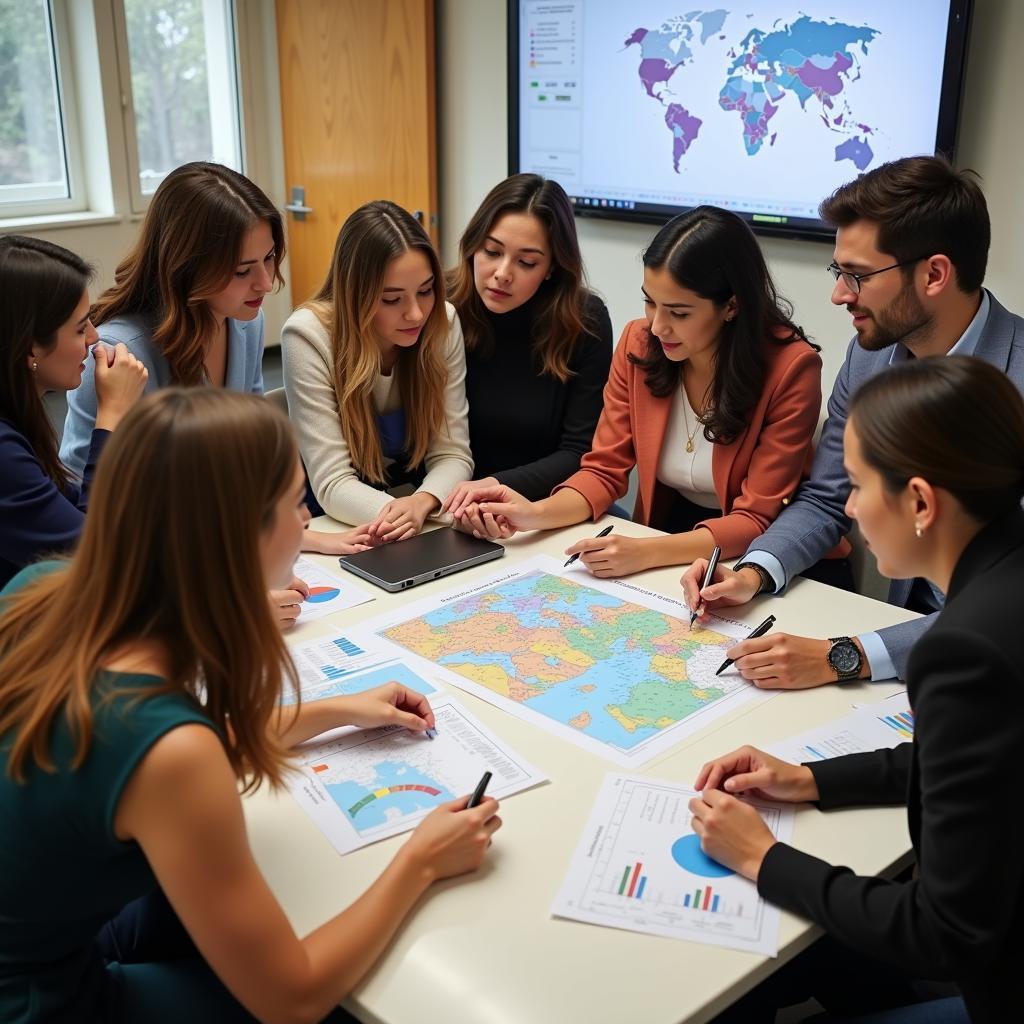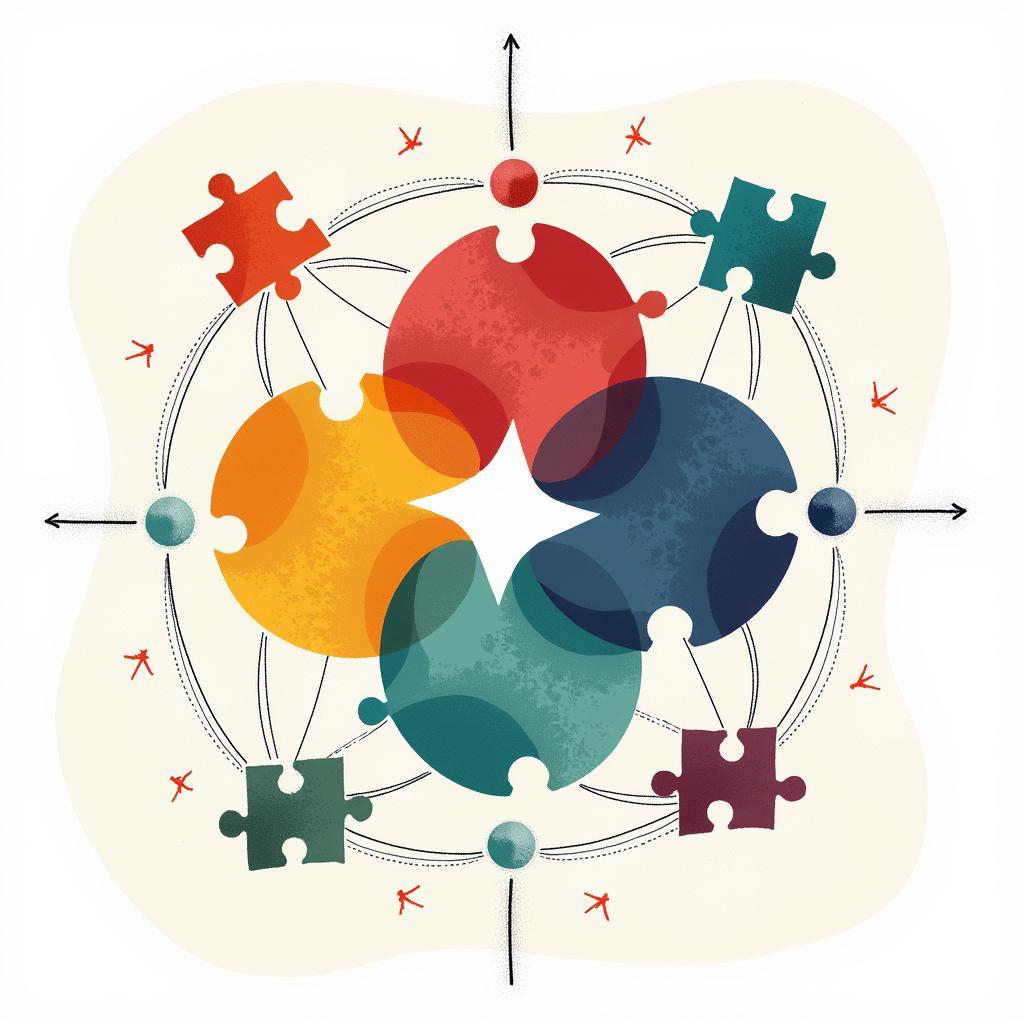The term “Society Of Decision Professionals” might seem unusual at first glance, particularly within the context of peacebuilding. However, at its core, peacebuilding hinges upon strategic decisions, carefully crafted and implemented by individuals and organizations dedicated to fostering a more harmonious world. These “decision professionals” represent a diverse group of actors, each playing a crucial role in navigating the complex landscape of conflict resolution and peace promotion.
Who are Decision Professionals in Peacebuilding?
Decision professionals in the peacebuilding sphere encompass a wide range of individuals and entities, each wielding influence and expertise in their respective domains. Let’s delve into some key players:
- Diplomats and Negotiators: Often at the forefront of peace processes, these skilled individuals bridge divides between conflicting parties, facilitating dialogue and seeking mutually acceptable solutions.
- Conflict Resolution Practitioners: From mediators to trainers, these professionals work at various levels, equipping communities with the tools and skills to manage and transform conflict constructively.
- Humanitarian Aid Workers: Operating in conflict zones and post-conflict environments, they provide life-saving assistance and support, addressing immediate needs while also laying the groundwork for long-term recovery and resilience.
- Human Rights Defenders: Courageously advocating for the rights of all, they document violations, challenge impunity, and empower marginalized voices, fostering a culture of respect for human dignity.
- Academics and Researchers: Generating knowledge and insights into the root causes of conflict, effective peacebuilding strategies, and the dynamics of reconciliation, their work informs policy and practice.
 Decision Making in Peacebuilding
Decision Making in Peacebuilding
The Importance of Ethical Decision-Making
The decisions made by these professionals carry profound weight, shaping the trajectory of peace processes and impacting the lives of countless individuals and communities. Ethical considerations are paramount:
- Do No Harm: Every decision must prioritize minimizing harm and avoiding actions that could exacerbate existing tensions or create new ones.
- Local Ownership and Inclusivity: Sustainable peace requires the active participation and ownership of local actors. Decision-making processes should reflect the needs, perspectives, and aspirations of those most affected by conflict.
- Impartiality and Neutrality: Maintaining impartiality is crucial for building trust among conflicting parties and ensuring the legitimacy of peacebuilding efforts.
- Transparency and Accountability: Open and transparent decision-making processes, coupled with mechanisms for accountability, are vital for fostering trust, managing expectations, and ensuring the integrity of peacebuilding initiatives.
Challenges and Opportunities in a Complex World
The landscape in which decision professionals operate is constantly evolving, marked by:
- Intractable Conflicts: Many contemporary conflicts are characterized by their complexity, involving multiple actors, intertwined issues, and deep-seated grievances.
- Geopolitical Shifts: Shifting power dynamics, rising nationalism, and competition over resources create new challenges and opportunities for peacebuilding.
- Technological Advancements: While technology offers innovative tools for communication, data analysis, and peacebuilding initiatives, it also presents new risks, such as the spread of misinformation and the escalation of online hate speech.
 Challenges in Peacebuilding
Challenges in Peacebuilding
Fostering a Culture of Peace
The work of decision professionals is not solely about resolving conflicts; it’s about fostering a culture of peace that permeates all levels of society. This requires:
- Investing in Education: Nurturing a generation that understands conflict, embraces diversity, and possesses the skills to engage in constructive dialogue is essential.
- Promoting Dialogue and Understanding: Creating spaces for open and respectful communication across divides helps to dismantle prejudices and build bridges of understanding.
- Supporting Grassroots Peacebuilding Initiatives: Local communities often hold the key to lasting peace. Supporting their initiatives and empowering them to lead the way is crucial.
Conclusion
While the term “society of decision professionals” might not immediately evoke images of peacebuilding, it underscores the crucial role that informed, ethical, and strategic decision-making plays in creating a more peaceful world. By understanding the complexities of conflict, embracing collaboration, and prioritizing human dignity, we can collectively contribute to building a future where peace prevails.
Need support? Contact us:
Phone: +84 2043854663
Email: [email protected]
Address: Khu 34, Bac Giang, 260000, Viet Nam.
Our dedicated team is available 24/7 to assist you.